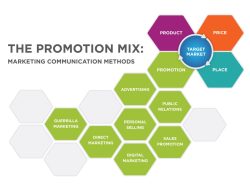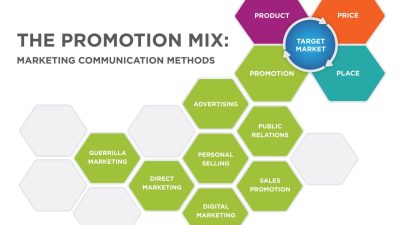Branding Mistakes That Could Hurt Your Business offers a crucial insight into the pitfalls that can sabotage your brand’s potential. In a world where first impressions matter immensely, understanding how branding missteps can lead to lost customers and tarnished reputations is essential. This journey through branding reveals not just the common errors but also the impactful strategies to avoid them, ensuring your business shines in a competitive landscape.
The essence of branding lies in clarity and connection. When brands fail to communicate their identity effectively, they risk alienating their audience. From inconsistent messaging to neglecting the power of visual identity, we will explore the various dimensions of branding that, if mishandled, could impede your business growth and diminish trust among consumers.
In today’s fast-paced world, the ability to persuade effectively is not just an art form; it’s an essential skill that can significantly enhance personal and professional interactions. Whether you’re trying to secure a deal, motivate your team, or simply convince a friend, understanding the nuances of persuasion can open doors to new possibilities. This article delves into the intricacies of persuasion, providing you with the tools you need to become a master influencer.
Understanding Persuasion
At its core, persuasion is the process of influencing someone’s beliefs, attitudes, or behaviors. It’s not merely about getting someone to say “yes” but about fostering genuine connections and understanding human psychology. The key to effective persuasion lies in understanding your audience, crafting your message, and delivering it with conviction and empathy.
The Psychology Behind Persuasion
To harness the power of persuasion, it’s essential to understand the psychological principles that underpin it. Renowned psychologist Robert Cialdini identified six principles of influence that can be game-changers in your persuasive efforts:
- Reciprocity: People feel obliged to return favors. By giving something of value first, you create a sense of indebtedness.
- Commitment and Consistency: Once someone commits to something, they are more likely to follow through. Getting small initial agreements can lead to larger commitments down the line.
- Social Proof: People tend to follow the actions of others, especially in uncertain situations. Showcasing testimonials or endorsements can build credibility.
- Authority: Individuals are more likely to be influenced by those who are deemed experts in a certain field. Position yourself as a knowledgeable figure to gain trust.
- Liking: We are more likely to be persuaded by people we like. Building rapport and finding common ground increases your chances of success.
- Scarcity: The perception of limited availability can create urgency. Highlight what’s scarce to prompt immediate action.
Crafting Your Message
The delivery of your message is just as important as its content. Here are some effective strategies to ensure your message resonates with your audience:
1. Know Your Audience
Research your audience’s interests, values, and pain points. Tailoring your approach to address their specific needs will enhance your persuasive power.
2. Create a Compelling Narrative
Stories are incredibly powerful tools in persuasion. They help convey your message in a relatable and memorable way. Use anecdotes that your audience can connect with to illustrate your points effectively.
3. Use Clear and Concise Language, Branding Mistakes That Could Hurt Your Business
Avoid jargon and overly complex terms that can confuse your audience. Clarity fosters understanding, making it easier for your audience to grasp your message.
4. Employ Emotional Appeal
Emotions play a significant role in decision-making. Whether it’s joy, fear, or empathy, appeal to your audience’s emotions to create a deeper connection.
Delivery Matters
Once you have crafted your persuasive message, it’s time to think about the delivery. The way you present your ideas can drastically affect how they are received:
1. Body Language
Your non-verbal cues speak volumes. Maintain eye contact, use open gestures, and modulate your tone to convey confidence and sincerity.
2. Practice Active Listening
Engage with your audience. Listen to their feedback and respond accordingly. This not only shows that you value their input but also allows you to adjust your approach based on their reactions.
3. Be Authentic
Authenticity builds trust. Avoid being overly scripted; instead, let your personality shine through. Genuine passion and belief in your message are contagious and can sway even the most skeptical listeners.

Overcoming Objections
In any persuasive endeavor, expect resistance. The ability to handle objections gracefully can make or break your success:
1. Anticipate Concerns
Before presenting your message, think about potential objections. Addressing these proactively demonstrates your thoroughness and understanding of the topic.
2. Use Empathy
Recognize and validate your audience’s concerns. Showing that you understand their point of view fosters goodwill and paves the way for a more constructive conversation.
3. Provide Evidence
Support your claims with data, testimonials, or logical reasoning. This reinforces your credibility and makes your argument more compelling.
Practice Makes Perfect
Like any skill, persuasion takes practice. Engage in opportunities where you can refine your persuasive techniques, whether through public speaking, sales, or everyday conversations. Seek feedback and learn from each experience to continuously enhance your abilities.
Conclusion: Branding Mistakes That Could Hurt Your Business
The ability to persuade effectively can unlock countless opportunities in both personal and professional realms. By understanding the psychology behind persuasion, crafting compelling messages, and delivering them authentically, you can become a powerful influencer. Remember, persuasion is not about manipulation; it’s about connecting with others in a way that fosters mutual understanding and respect. Embrace this art, and watch how it transforms your interactions and opens the door to new possibilities.















